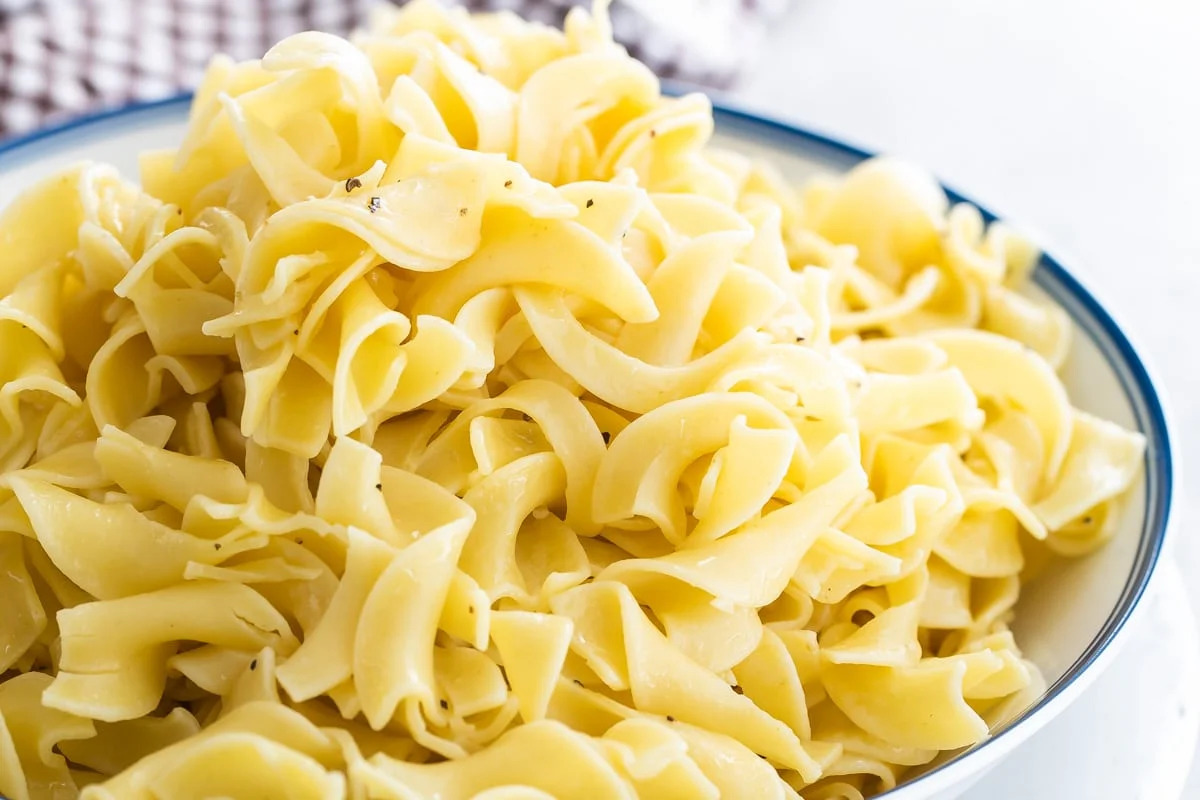

Articles
How To Store Cooked Egg Noodles
Modified: August 17, 2024
Learn the best methods for storing cooked egg noodles to keep them fresh and flavorful. Read more articles on proper food storage techniques.
(Many of the links in this article redirect to a specific reviewed product. Your purchase of these products through affiliate links helps to generate commission for Storables.com, at no extra cost. Learn more)
Introduction
Cooked egg noodles are a versatile and delicious ingredient that can be used in a variety of dishes. Whether you’re making a comforting bowl of chicken noodle soup or a flavorful stir-fry, having a batch of cooked egg noodles on hand can save you time and effort in the kitchen.
However, storing cooked egg noodles properly is essential to maintain their freshness and texture. If not stored correctly, they can become soggy, lose their flavor, or even spoil. In this article, we will explore the importance of properly storing cooked egg noodles and provide you with some best practices to ensure their longevity.
Note: Before storing cooked egg noodles, ensure that they have been properly cooked and cooled to room temperature.
Key Takeaways:
- Properly storing cooked egg noodles is crucial for maintaining freshness, safety, convenience, and cost-effectiveness. Follow best practices like cooling, portioning, and using airtight containers to maximize their shelf life.
- Whether refrigerating for short-term use, freezing for extended storage, or pantry storage for immediate consumption, proper labeling and reheating techniques ensure delicious and convenient meals with stored cooked egg noodles.
Read more: How To Store Homemade Egg Noodles
Importance of Properly Storing Cooked Egg Noodles
Properly storing cooked egg noodles is essential for maintaining their quality and preventing them from spoiling. Here are a few reasons why it’s important to store them correctly:
- Freshness: By storing cooked egg noodles properly, you can ensure that they stay fresh for a longer period of time. This is important for preventing any unpleasant taste or texture changes that can occur when noodles go bad.
- Safety: Storing cooked egg noodles at the right temperature can help prevent the growth of harmful bacteria. When food is left at room temperature for too long, bacteria can multiply rapidly, leading to foodborne illnesses.
- Convenience: Properly stored cooked egg noodles can be a time-saving option for busy individuals or families. By preparing a larger batch in advance and storing them properly, you can have a quick and easy meal ready to go whenever you need it.
- Cost-effective: Storing cooked egg noodles properly can help reduce food waste. Instead of throwing away leftover noodles, you can store them and use them in future meals, saving money in the long run.
Now that we understand the importance of properly storing cooked egg noodles, let’s explore some best practices for storing them to maximize their shelf life and maintain their deliciousness.
Best Practices for Storing Cooked Egg Noodles
To ensure that your cooked egg noodles stay fresh and flavorful, follow these best practices for storing them:
- Cool the noodles: Before storing, allow the cooked egg noodles to cool down to room temperature. This helps prevent the noodles from becoming soggy and clumping together during storage.
- Divide into portions: If you have a large batch of cooked egg noodles, divide them into smaller portions before storing. This makes it easier to defrost or reheat only the amount you need for each meal, reducing waste.
- Use airtight containers: Store the cooked egg noodles in airtight containers to prevent air and moisture from reaching them. This helps maintain their texture and flavor. Zip-lock bags or food-grade plastic containers with tight-fitting lids are great options for storage.
- Label and date: To keep track of when the cooked egg noodles were stored, it’s helpful to label the containers with the date. This ensures that you can use the stored noodles within a reasonable timeframe.
- Refrigerate or freeze promptly: If you’re not planning to use the cooked egg noodles within a day or two, it’s best to refrigerate or freeze them as soon as they have cooled down. This helps prevent the growth of bacteria and extends their shelf life.
Now that we have covered the best practices for storing cooked egg noodles, let’s explore the different options for storing them: refrigerating, freezing, or storing them in the pantry.
Option 1: Refrigerating Cooked Egg Noodles
Refrigerating cooked egg noodles is an ideal option if you plan to use them within a few days. Here’s how to properly store them in the refrigerator:
- Cool the noodles: Allow the cooked egg noodles to cool completely before refrigerating them. This will prevent condensation from forming inside the container and making the noodles soggy.
- Portion and pack: Divide the noodles into individual portions or pack them in a single container if you plan to use them all at once. Use airtight containers or resealable bags to prevent moisture and odors from leaking in or out.
- Label and date: Don’t forget to label the container or bag with the date you stored the noodles. This will help you keep track of their freshness.
- Store in the refrigerator: Place the container with the cooked egg noodles in the refrigerator. Make sure to store them on a shelf rather than in the door or near the back of the fridge, as these areas experience temperature fluctuations.
- Use within 3-4 days: Refrigerated cooked egg noodles are best consumed within 3-4 days for optimal freshness and taste. Beyond this time, the texture may start to decline, and they may become less flavorful.
Refrigerating cooked egg noodles is a convenient option when you’re planning to use them in dishes like pasta salads, stir-fries, or noodle soups within a few days. If you want to store them for a longer duration, freezing is a great alternative, which we will discuss next.
Store cooked egg noodles in an airtight container in the refrigerator for up to 5 days. To prevent sticking, toss them with a little oil before storing.
Option 2: Freezing Cooked Egg Noodles
Freezing cooked egg noodles is an excellent option if you want to extend their shelf life beyond a few days. Follow these steps to freeze cooked egg noodles properly:
- Cool the noodles: Allow the cooked egg noodles to cool completely before freezing. This helps preserve their texture and prevents them from becoming mushy.
- Portion and pack: Divide the noodles into individual or meal-sized portions. This makes it easier to defrost only the amount you need without thawing the entire batch. Use freezer-safe containers, resealable bags, or even wrap them tightly with plastic wrap.
- Remove excess air: When using resealable bags, squeeze out as much air as possible before sealing them. This helps prevent freezer burn and maintains the quality of the noodles.
- Label and date: Clearly label each container or bag with the date of freezing. This ensures that you can use the oldest noodles first and helps you keep track of their storage duration.
- Freeze promptly: Place the packed egg noodles in the freezer, making sure they lie flat to allow for even freezing and easy stacking. For faster freezing, it’s advisable to keep the containers or bags in a single layer initially and then stack them once fully frozen.
- Store for up to 3 months: Cooked egg noodles can be stored in the freezer for up to 3 months without significant loss of quality. However, for the best taste and texture, it’s recommended to use them within 1-2 months.
Freezing cooked egg noodles can be a convenient option when you want to have a quick and easy meal ready to go. They work well in dishes like casseroles, pasta bakes, or stir-fries, where they can be added directly from the freezer without the need for thawing.
Note: While the frozen cooked egg noodles will still be safe to eat after longer periods in the freezer, their texture may deteriorate, resulting in a softer or mushier consistency.
Read more: How To Store Egg Noodles Long Term
Option 3: Pantry Storage for Cooked Egg Noodles
Pantry storage is an alternative option for storing cooked egg noodles if you prefer not to refrigerate or freeze them. Here’s how to store cooked egg noodles in the pantry:
- Cool and dry the noodles: Allow the cooked egg noodles to cool completely and dry them thoroughly. This helps prevent moisture from causing them to spoil.
- Transfer to airtight containers: Once the noodles are cool and dry, transfer them to airtight containers or resealable bags. This will protect them from moisture, mold, and other contaminants in the pantry.
- Store in a cool, dark place: Find a cool and dark spot in your pantry to store the containers of cooked egg noodles. Avoid areas that are exposed to sunlight or heat sources, as this can cause the noodles to spoil faster.
- Use within 2-3 days: Pantry storage is not as long-term as refrigerating or freezing, and cooked egg noodles stored this way are best consumed within 2-3 days. Be sure to check for any signs of spoilage before using them.
Note: Pantry storage is suitable for relatively short durations and is not recommended for cooked egg noodles that have been sitting out for a prolonged period or are leftovers from a previous meal.
While pantry storage may not offer the same extended shelf life as refrigeration or freezing, it can be a convenient option when you plan to use the cooked egg noodles within a couple of days. Just make sure to inspect the noodles for any signs of spoilage or off odors before consuming them.
Tips for Reheating Stored Cooked Egg Noodles
When you’re ready to enjoy your stored cooked egg noodles, follow these tips to ensure they are reheated properly and maintain their deliciousness:
- Refrigerated noodles: If you refrigerated the cooked egg noodles, they can be reheated directly. Simply place them in a microwave-safe dish and microwave on medium power in 30-second intervals, stirring in between, until heated through.
- Frozen noodles: If you froze the cooked egg noodles, it’s best to thaw them before reheating. Allow them to thaw overnight in the refrigerator or use the defrost setting on the microwave. Once thawed, you can follow the same reheating instructions as for refrigerated noodles.
- Reheat with sauce: When reheating cooked egg noodles, consider adding a splash of water or sauce to prevent them from drying out. This will help restore their moisture and bring back their original texture.
- Avoid overcooking: Be mindful not to overcook the reheated noodles, as they can quickly become mushy and lose their pleasant texture. Keep a close eye on them and heat just until they are warmed through.
- Enhance flavors: Consider adding additional ingredients or seasonings while reheating to enhance the flavors of the cooked egg noodles. You can add a drizzle of olive oil, sprinkle some herbs or grated cheese, or toss them with your favorite sauce before heating.
Keep in mind that reheating cooked egg noodles multiple times may affect their texture and quality. It’s best to only reheat the amount you plan to consume to avoid excessive reheating.
By following these tips, you can enjoy your stored cooked egg noodles as a delicious and convenient meal option, ready to be incorporated into your favorite recipes!
Conclusion
Properly storing cooked egg noodles is essential for maintaining their freshness, texture, and flavor. Whether you choose to refrigerate, freeze, or store them in the pantry, following the best practices outlined in this article will help maximize their shelf life and keep them delicious.
Refrigeration is a good option when you plan to use the cooked egg noodles within a few days. Freezing, on the other hand, allows you to store them for a longer duration, making them a convenient choice for prepared meals. Pantry storage is suitable for shorter durations when you’re planning to use the noodles within a couple of days.
Remember to cool the noodles before storing, use airtight containers to protect them from moisture and odors, and label them with the date of storage. This will help you keep track of their freshness and ensure you use the oldest noodles first.
When reheating stored cooked egg noodles, follow the tips provided to maintain their texture and enhance their flavors. Be cautious not to overcook them and consider adding sauces or additional ingredients to elevate their taste.
By incorporating these practices into your cooking routine, you can enjoy the convenience and versatility of cooked egg noodles whenever you need a quick and satisfying meal.
So, whether you’re preparing a classic noodle soup, a savory stir-fry, or a delicious pasta salad, properly storing your cooked egg noodles will help you achieve the best results every time. Happy cooking!
Frequently Asked Questions about How To Store Cooked Egg Noodles
Was this page helpful?
At Storables.com, we guarantee accurate and reliable information. Our content, validated by Expert Board Contributors, is crafted following stringent Editorial Policies. We're committed to providing you with well-researched, expert-backed insights for all your informational needs.
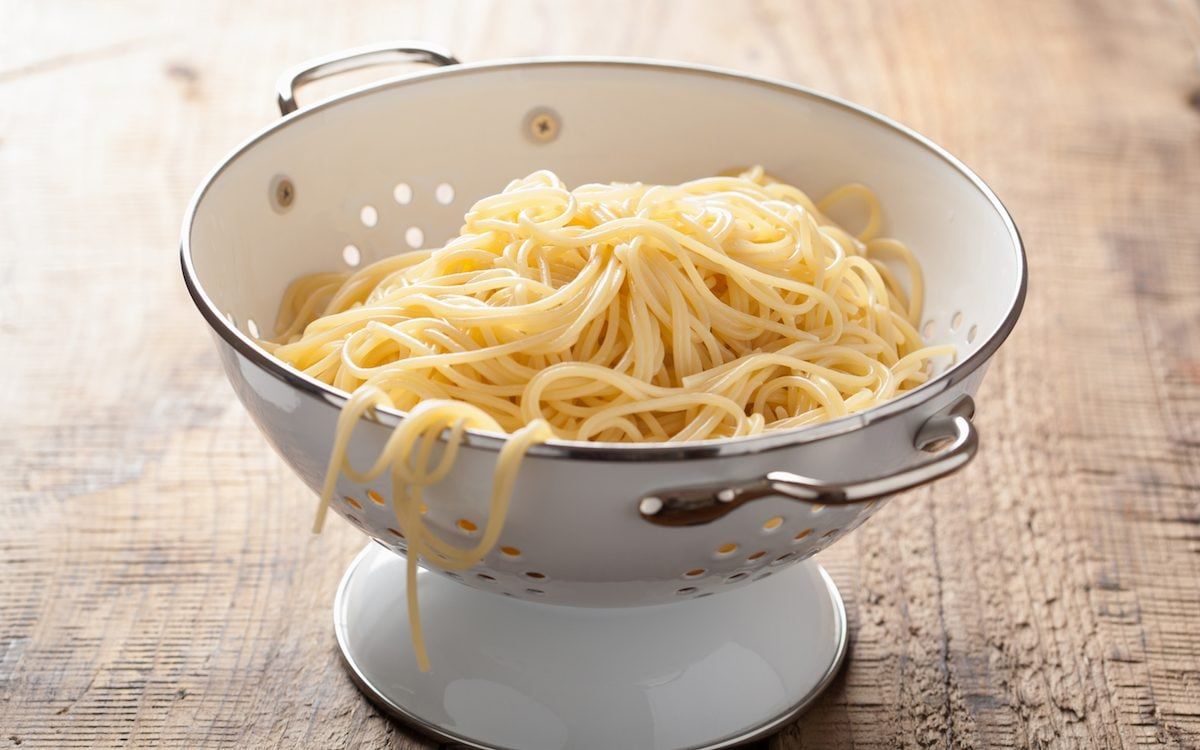

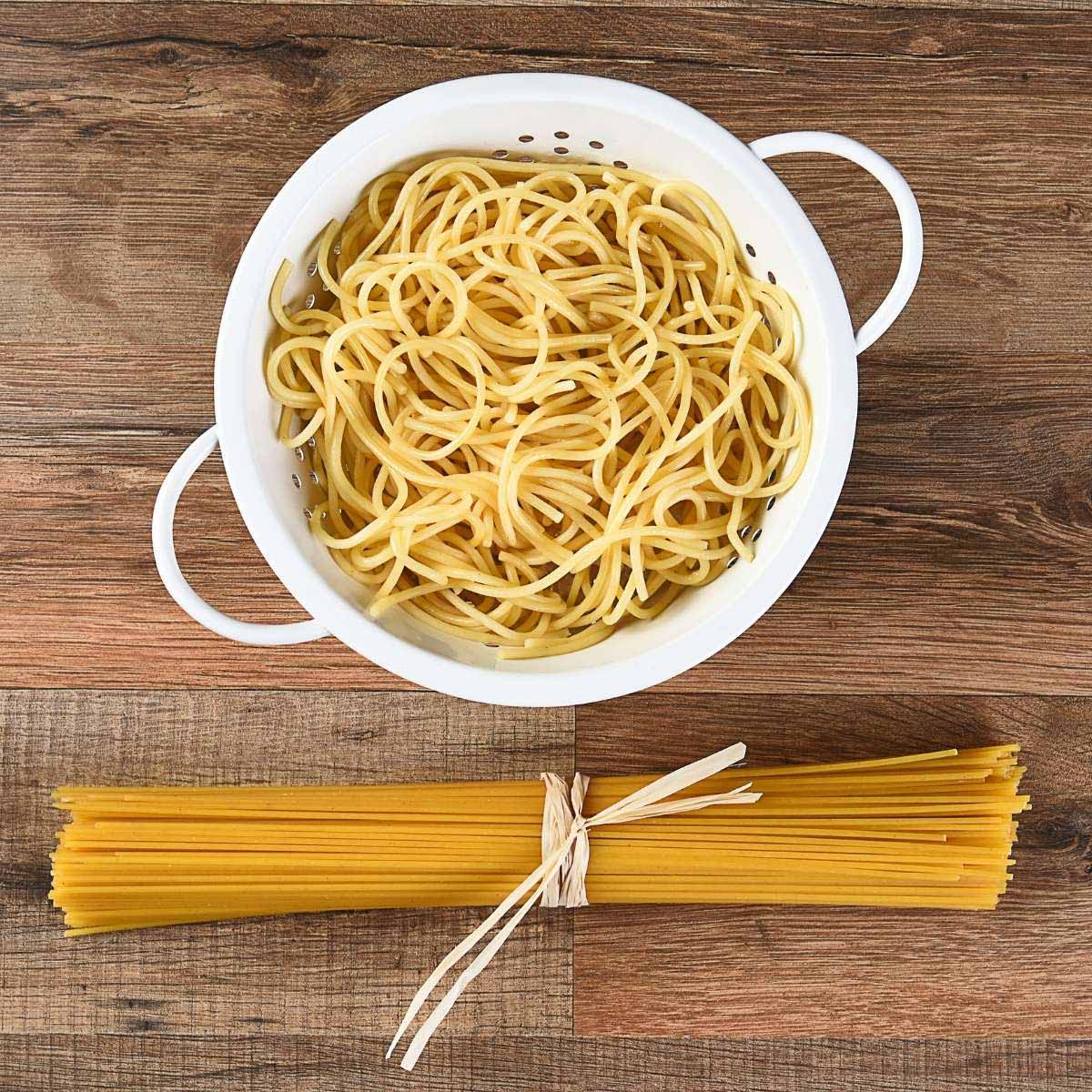

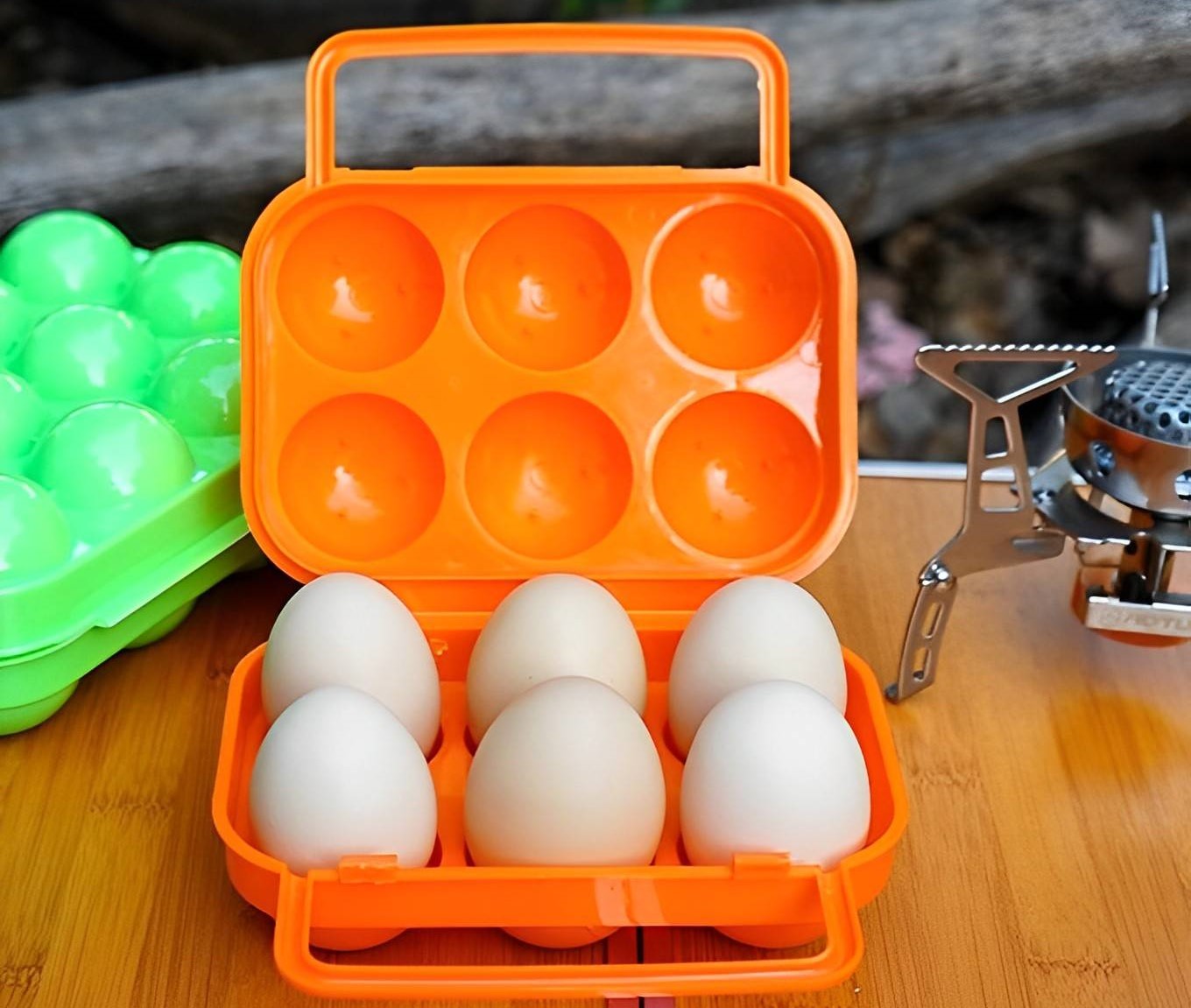
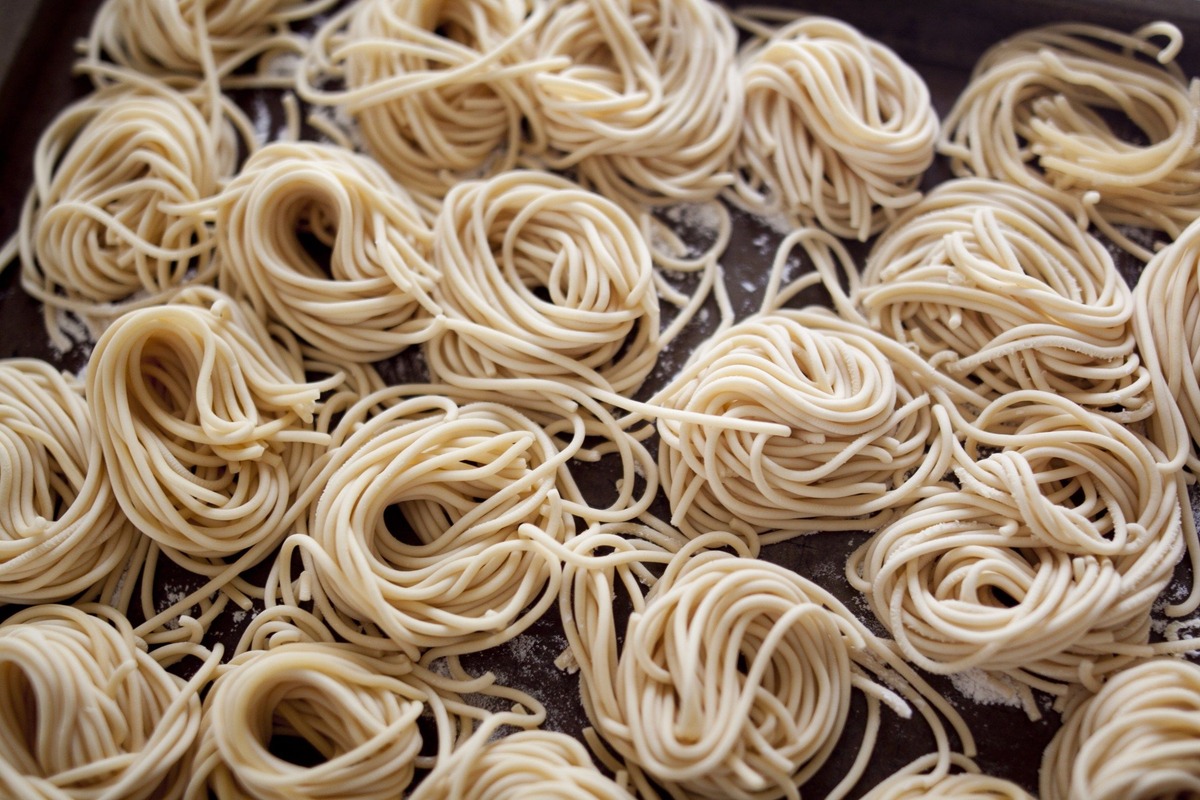
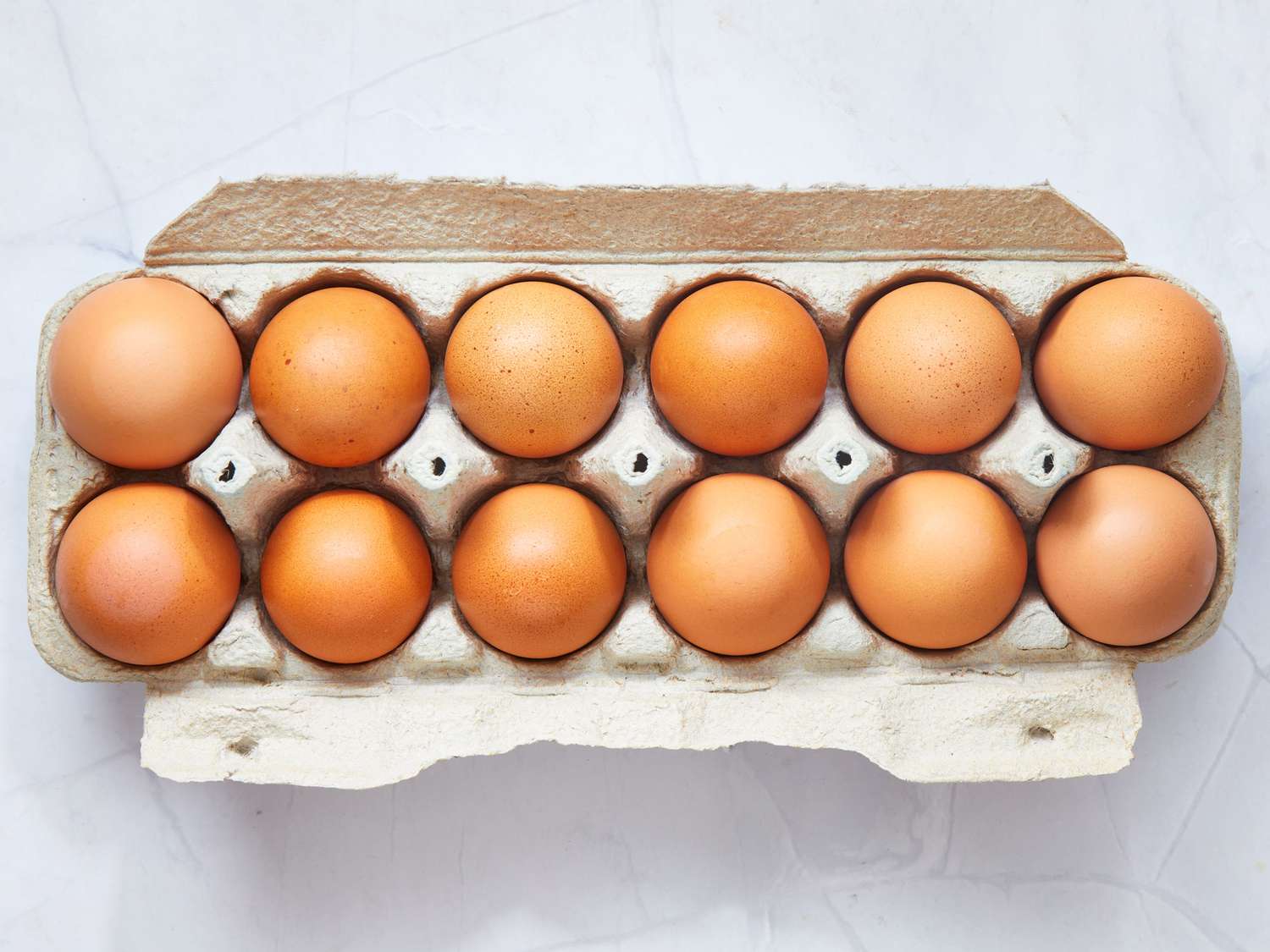

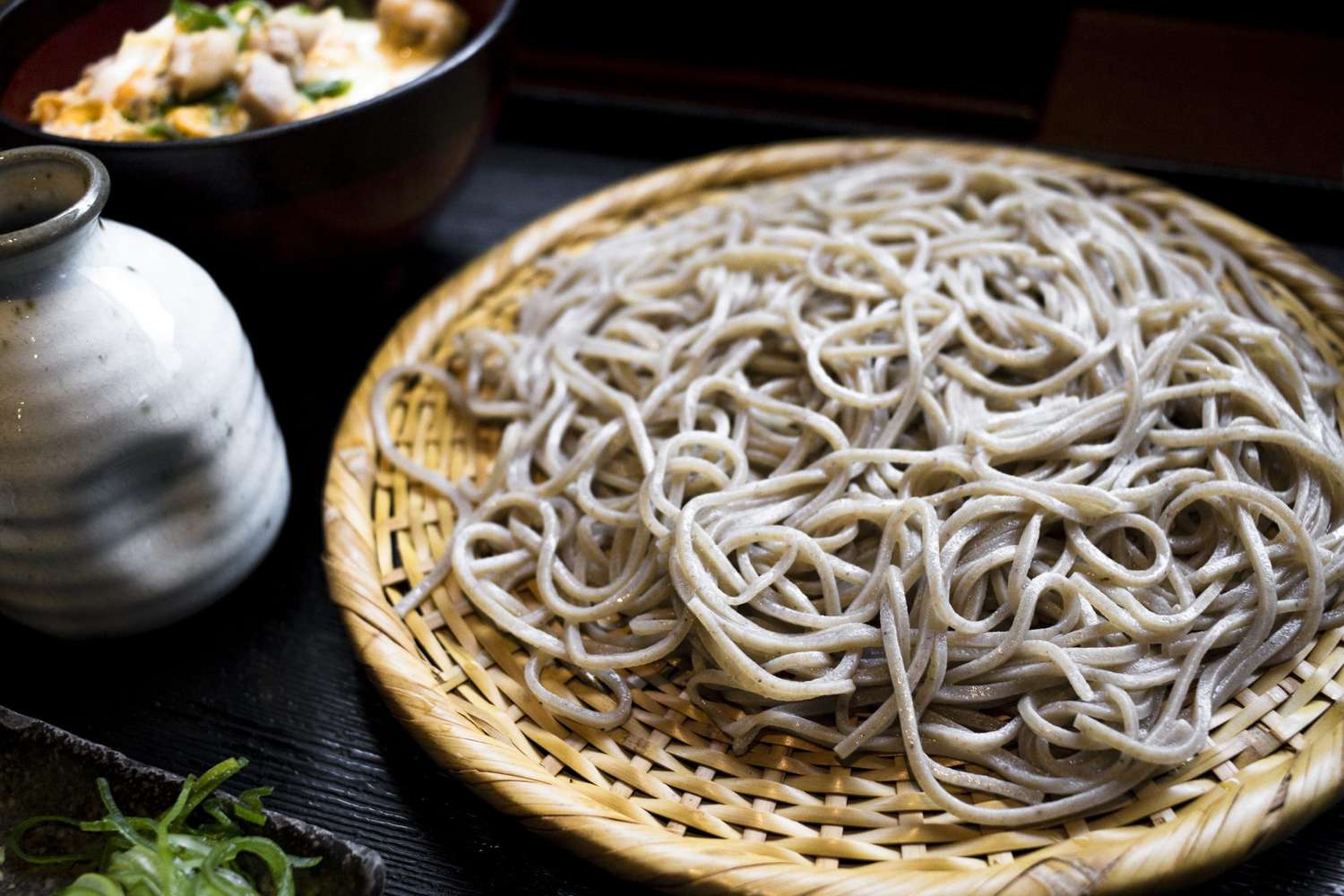
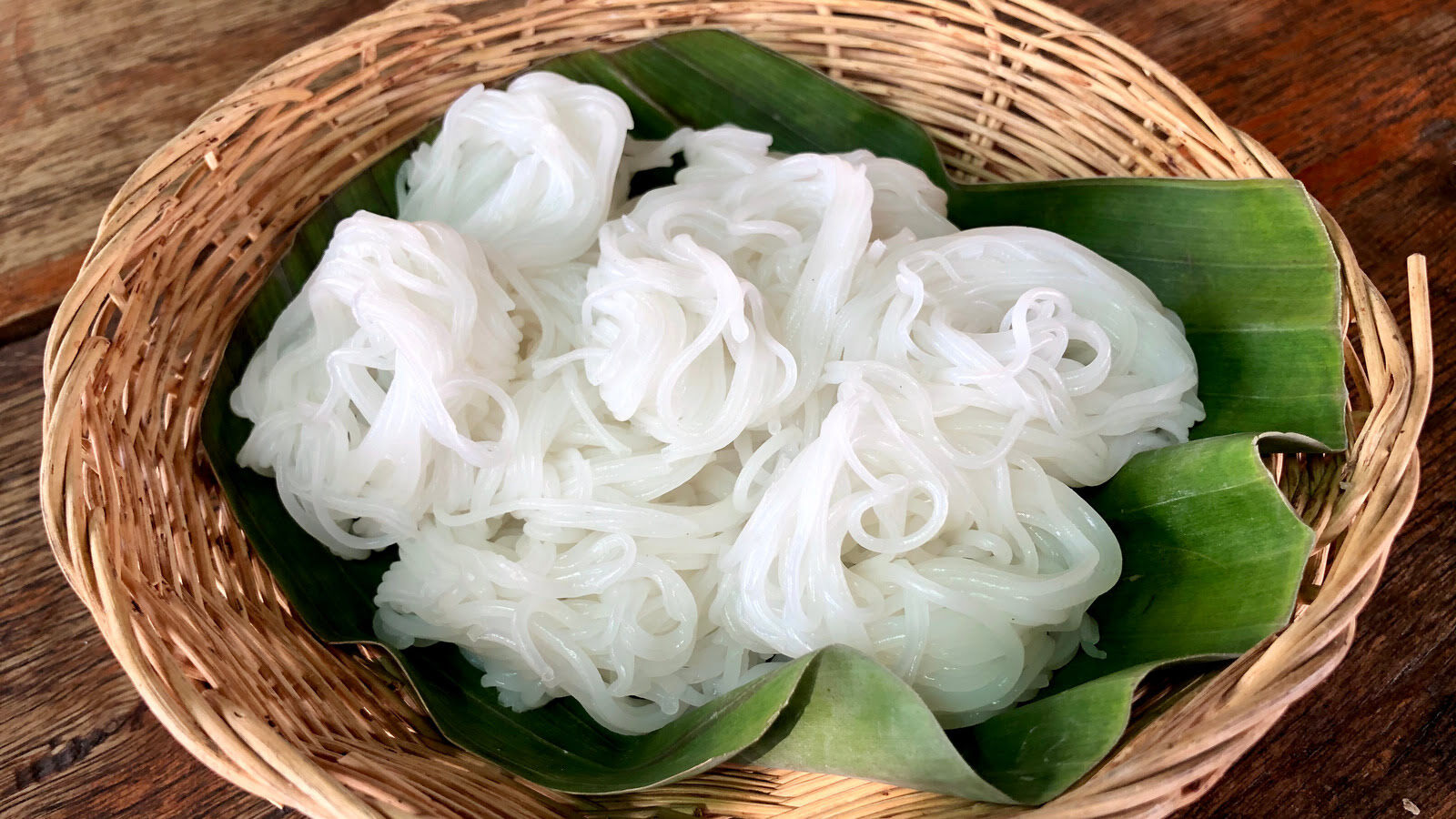

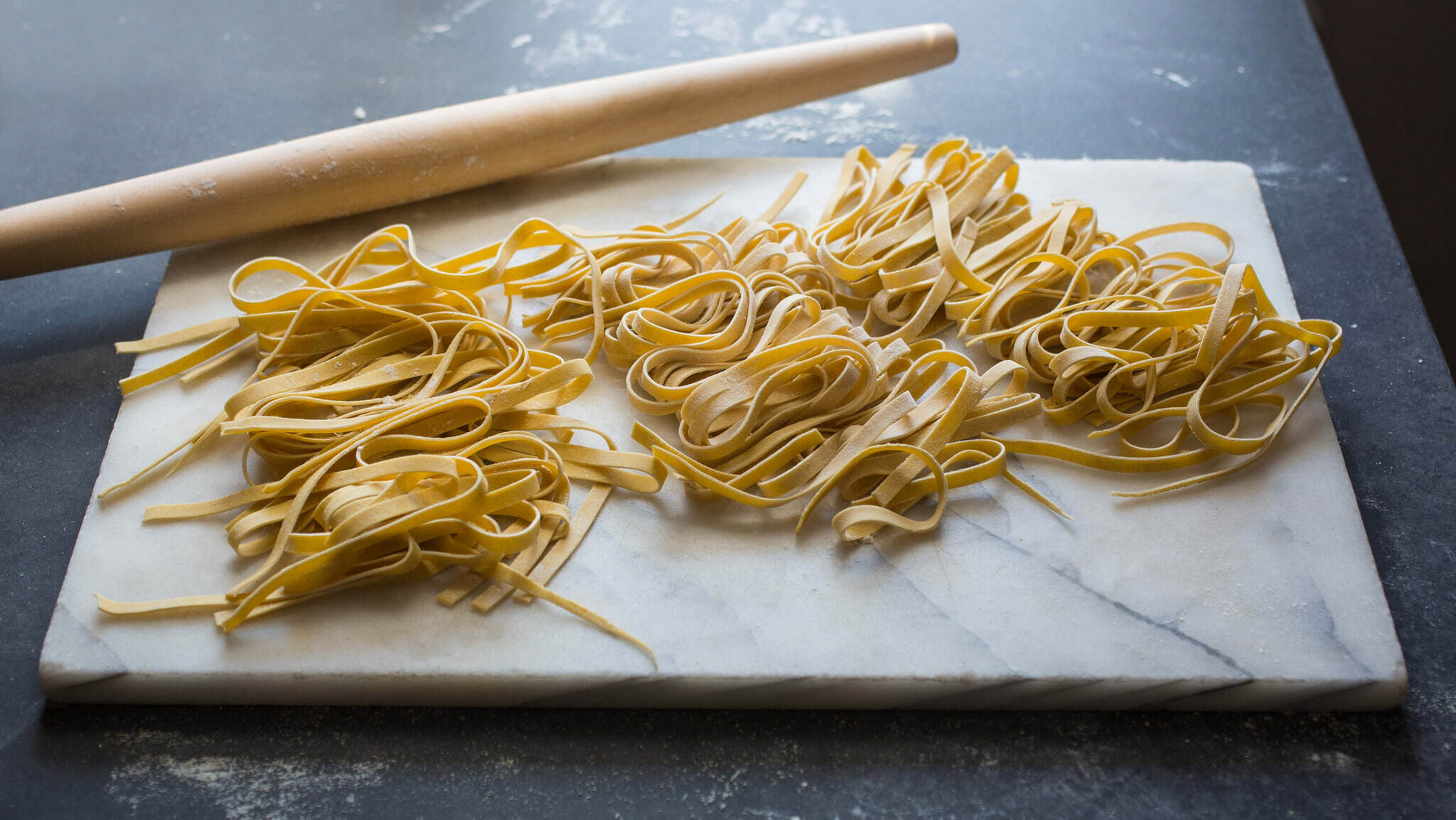
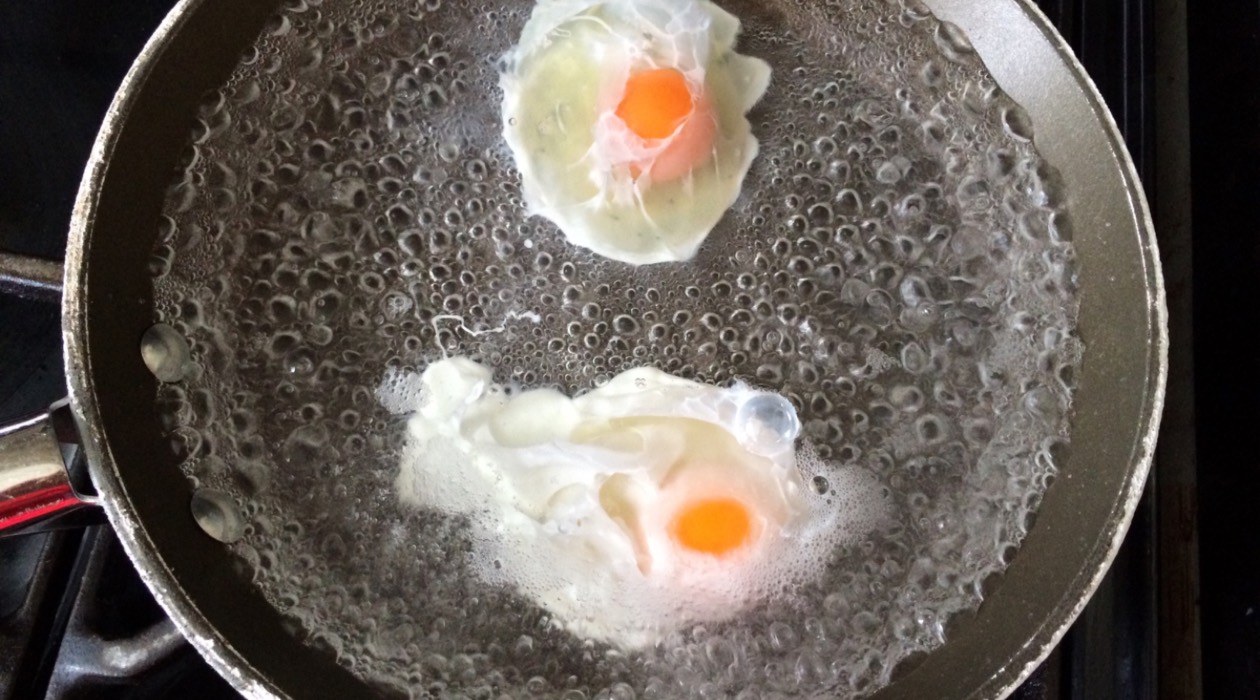


0 thoughts on “How To Store Cooked Egg Noodles”